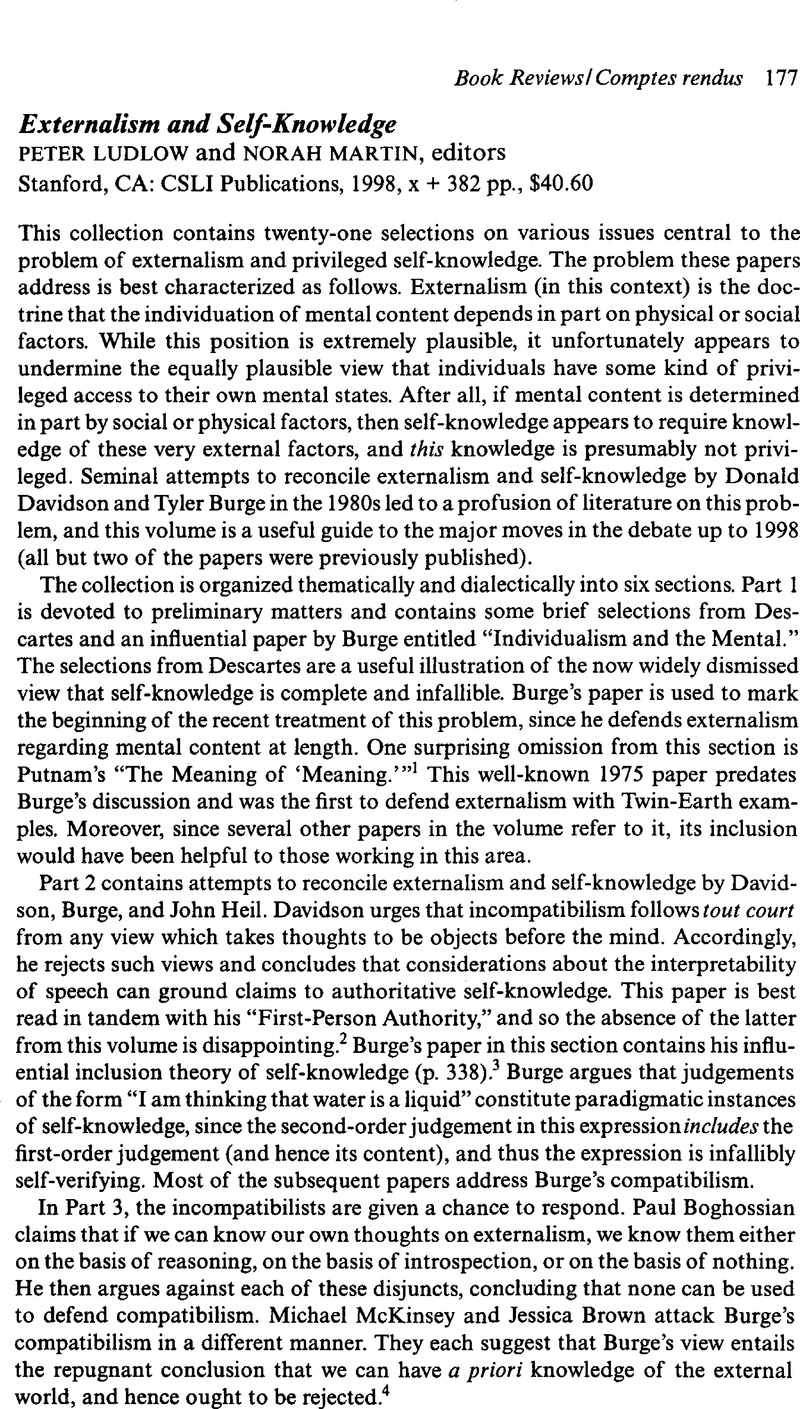No CrossRef data available.
Published online by Cambridge University Press: 13 April 2010

1 This paper is found in his Mind, Language, and Reality (New York: Cambridge University Press, 1975).Google Scholar
2 Davidson's, “First Person Authority” appeared in Dialectica, 38 (1984): 101–12.CrossRefGoogle Scholar
3 This moniker for Burge's theory was coined by Sven Bernecker.
4 Discussion of this charge is still prevalent in the literature. See, for example, Boghossian's “What the Externalist Can Know A Priori” and McLaughlin, and Tye's, “Externalism, Twin-Earth, and Self-Knowledge,” both in Knowing Our Own Minds, edited by Wright, C.Smith, B. C. and MacDonald, C. (Oxford: Clarendon Press, 1998).Google Scholar
5 This is the only difference between Earth and Twin-Earth.
6 Warfield presents this standardization of Boghossian's argument. Boghossian's own presentation of the argument is on pp. 171–72.
7 This perspicacious formulation of Boghossian's argument is due to Ludlow, p. 308.
8 This seems a little unfair, since Burge nowhere explicitly endorses this possibility in his earlier work, while Boghossian (to his credit) does note that slow switching could be understood as not entailing conceptual loss (p. 159).